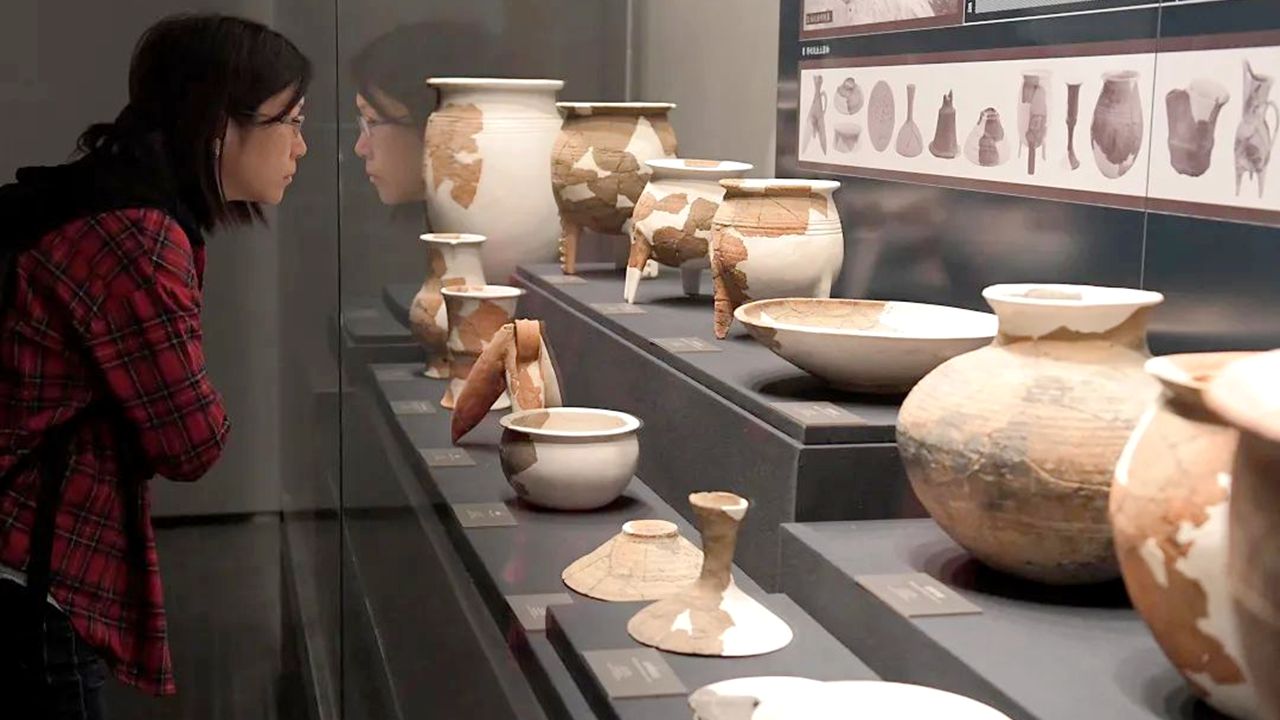Revised law strengthens protection of cultural relics
Writer: | Editor: Zhang Zhiqing | From: | Updated: 2024-11-19
China has adopted a revised law to strengthen the protection of its abundant cultural relics.
The Law on the Protection of Cultural Relics will take effect on March 1, 2025.
According to the law, governments at all levels are required to prioritize the protection of cultural relics and properly balance economic development, social progress, and relic preservation to ensure their safety.

A visitor views pottery ware exhibits at the Erlitou Relic Museum in Luoyang, Henan Province. Photo from Xinhua
Infrastructure projects and tourism development must prioritize cultural relic protection, strictly implementing regulations on preservation and safety management to prevent destructive construction and excessive commercialization, it adds.
China has been placing increasing emphasis on the protection of its cultural relics. The country is home to over 760,000 immovable cultural relic items, 108 million pieces or sets of State-owned movable cultural relics, 40 World Cultural Heritage sites, and four mixed cultural and natural heritage sites.
The law also toughens penalties for violators. Organizations that cause significant damage to cultural relics will face fines of up to 10 million yuan (US$1.39 million).
The law also stipulates that, while ensuring the safety of cultural relics, priority should be given to social benefits through the effective utilization of cultural relic resources.
The law also encourages the digitalization of cultural relics protection, including the digital collection, display, and utilization of cultural relic resources.
The revised law establishes a clear mechanism for the recovery and return of lost cultural relics, stipulating that the State Council’s cultural relics regulator shall coordinate with relevant departments to carry out recovery efforts in accordance with the law.
For foreign cultural relics illegally brought into China, the law provides for return cooperation with relevant countries based on applicable agreements or the principle of reciprocity.
The law also prohibits transactions involving cultural relics reported or announced as lost by foreign governments or relevant international organizations under applicable international conventions. (Xinhua)